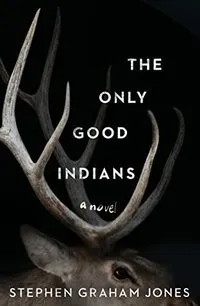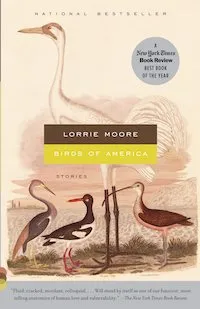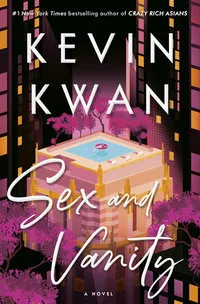
How to Start Reading Again After Grad School
I finished grad school nine years ago and my reading habits have been different ever since. I still love books, but it took time to start reading again after grad school. When I was an English major who loved Victorian novels, and then an MA student with a focus on 19th century literature, I truly enjoyed plowing through long, dense novels by Dickens, Eliot, and the Brontës. Spending my MA year immersed in the fiction I loved so much was a privilege. Naturally, I thought I’d continue to read those books once I finished. After all, there were so many I hadn’t yet gotten to!
But I didn’t. In fact, I didn’t even want to look at another 19th century novel. I started and lost interest in Jude the Obscure so many times it became a running joke with friends. I felt like I’d lost a big part of my “reading identity,” but that did leave me with time to read new books.
No matter what you studied in college or grad school, you probably had to do a lot of reading. Biology textbooks and legal case studies are demanding, too. And when that’s all you have time to read, your brain becomes particularly attuned to that world or writing style. It’s a shock to finish grad school, realize you have free time for reading for fun…and then feel like throwing away all your books and never reading anything again. Your brain is tired. It thinks of reading as a job. It needs to learn how to have fun with books again.
Though for a while I felt guilty every time I spotted the pristine unread copy of Our Mutual Friend on my bookshelf, the truth was that my brain needed a break from all that dense 19th century prose. I longed for snappy modern writing, light romances, cozy murder mysteries, quirky nonfiction — basically every book but that copy of The Mayor of Casterbridge I swore I’d read once I had time. And after a few years of reading everything and anything but Victorian fiction, reading once again became a treasured hobby and not the source of late-night anxiety about finishing a book in time for a seminar.
Here’s how I learned to start reading again after grad school, along with some other tips that might help you rediscover your love of reading for fun.
1. Read Something Completely Different
This sounds very obvious to me now, but it took me a while to realize that I could actually read other, different books after my MA. I didn’t feel like reading Victorian novels anymore but I felt like I should? But no! There is no “should” when you start reading again after grad school. You have no papers to write or seminars to attend. Did you do a graduate degree in anthropology? Read some children’s books! Former chemistry major? Find some poetry (I recommend the anthology Set Me on Fire, in which poems are categorized according to mood — so smart). Instead of Victorian novels, I read a ton of young adult novels, memoirs, and brand-new fiction.
2. Read Around Your Interests
Let’s say you did your graduate degree in ancient Greek history. Instead of busting out the Homer, try a novel set during that time period, like A Thousand Ships by Natalie Haynes. Maybe you studied a particular period of Indigenous history in North America. You can branch out a little with a new horror novel by an Indigenous writer, like The Only Good Indians by Stephen Graham Jones. There are millions of books in the world — trust me, there will be one about your super niche research. My research interest was the depiction of rabies in 19th century print culture, particularly in the novels of Charlotte Brontë. Pretty specific…and yet a month before I finished my degree, the book Rabid, a very entertaining cultural history of rabies, came out. It was a perfect thing to read once I was done because it explored the topic I’d just poured tons of time into researching, but with an engaging, conversational approach.
3. Don’t Read At All — But Stay Literature-Adjacent
You may not want to read anything at all for a while. And that’s totally fine! Reading is supposed to be a fun hobby and if you’re not having fun for a while, just take a rest. What you can do instead to stay book-adjacent: watch movies and shows based on books; talk about old favorite books with friends; do a Marie Kondo-style book weeding; read book websites (like, ahem, Book Riot) so you’re up to speed on all the exciting new releases when you are ready to get back to it; follow some Bookstagrammers and just look at pretty covers.
4. Read With Purpose By Starting a Book Club or Reading Project
One of the things I missed the most after finishing grad school was being in a room with smart people all talking about the same book. I’d gotten used to reading deeply and having great conversations with other people in my program, and I felt the absence of that almost immediately. In the next few years, I joined two book clubs and found a similar way of engaging with literature (with the added bonus of wine and snacks). Thanks to book clubs, I read everything from Tom Wolfe’s The Bonfire of the Vanities to Shyam Selvadurai’s Swimming in the Monsoon Sea. You can start your own book club! And it can be about whatever you want.
Another fun thing that mimics the structured reading of grad school is starting a reading project. This could be a Bookstagram account, a blog, or just a reading list of books on a particular topic you’ve always wanted to learn more about. Maybe you want to reread every single Sweet Valley High book or start an Instagram of best book covers.
5. Read Slowly and Let Yourself Take Breaks
I think this is the best way to start reading again after grad school. SLOWLY. So much of a reading-intensive grad program involves reading at a breakneck pace, skimming chapters, cramming for class the next day — it’s hard to remember that now you can slow down and savor your book. When I first finished grad school and was feeling particularly done with reading, I’d read only on the subway during my commute to work. It was a short, defined window of time and an easy way to build books into my routine without much pressure. Sometimes I decided to people watch or listen to music instead. It took me forever to finish books. I vividly remember carrying around Birds of America by Lorrie Moore for two months. But there’s no time limit on finishing a book in the real world. And eventually, that daily routine reminded me how to relax into a novel instead of speed-reading it to come up with three insightful things to say about it.
6. Don’t Judge Yourself
The less pleasant side of grad school is competition and intellectual superiority. Especially in an English program, you spend a lot of time reading books that have been deemed “classics” (by whom? Probably white men). It’s perfectly fine, even good, to read books outside that very narrow section of the shelf. Read romance novels, murder mysteries, sci-fi, and fantasy. Read the dishy Hollywood memoir that your mom’s book club loved. Read anything that sounds good to you, and remember that a pink cover or a celebrity endorsement doesn’t automatically mean one book is less “serious” than another. I recently read Kevin Kwan’s Sex and Vanity, a glitzy retelling of E.M. Forster’s A Room with a View. It was both wildly entertaining and a smart update of a classic.
By following these six tips, over time, I learned how to start reading again after grad school. Whether you want a brain vacation after reading so much philosophy or to find the same intellectual fulfillment you felt during seminars about medieval history, there is a path back to reading for fun! As for me, I did eventually finish Jude the Obscure even though I had to take it on two vacations and to the laundromat several times before I did. But I’ll be honest: I haven’t really returned to Victorian novels, even though it’s been nine years. I’m more likely to reach for almost anything else on my bookshelf. I do watch movies and shows based on my favorite 19th century novels, talk about them with friends, and read books inspired by them. That part of my “reading identity” is in my life, just in a different way right now. I will happily talk about Jane Austen heroes for hours. And I know that some day I’ll pick up Dickens again — this time just for fun.










